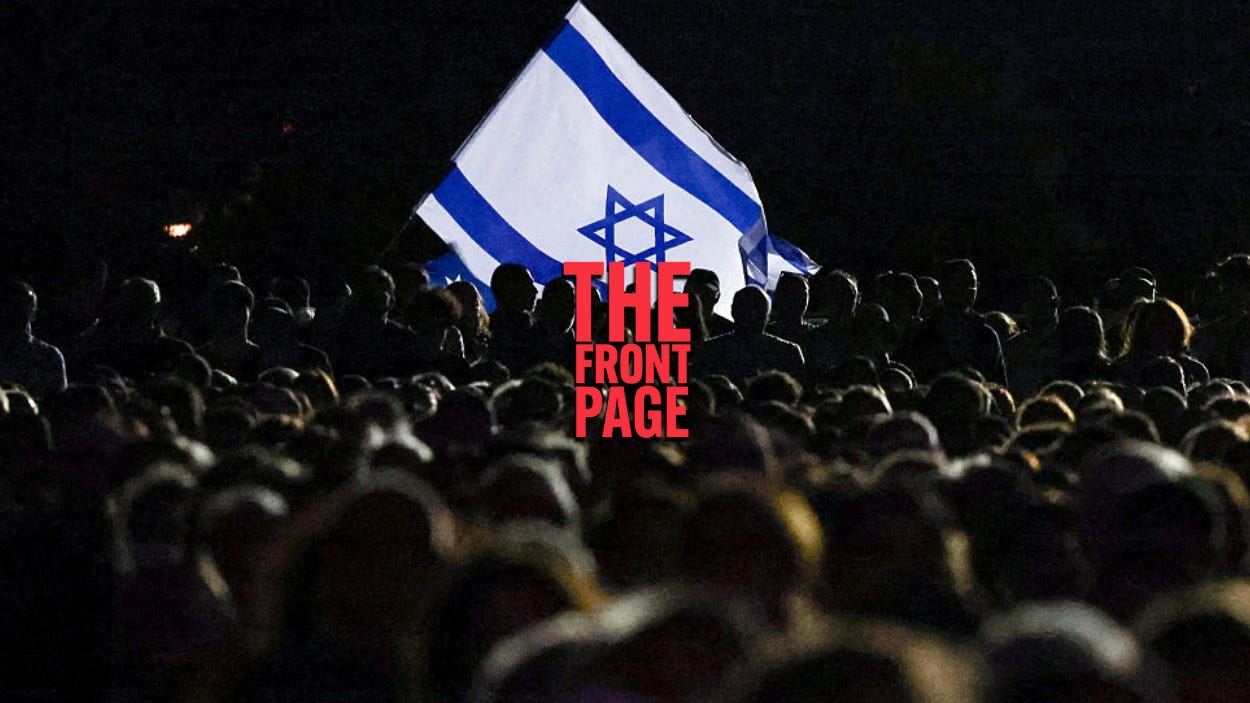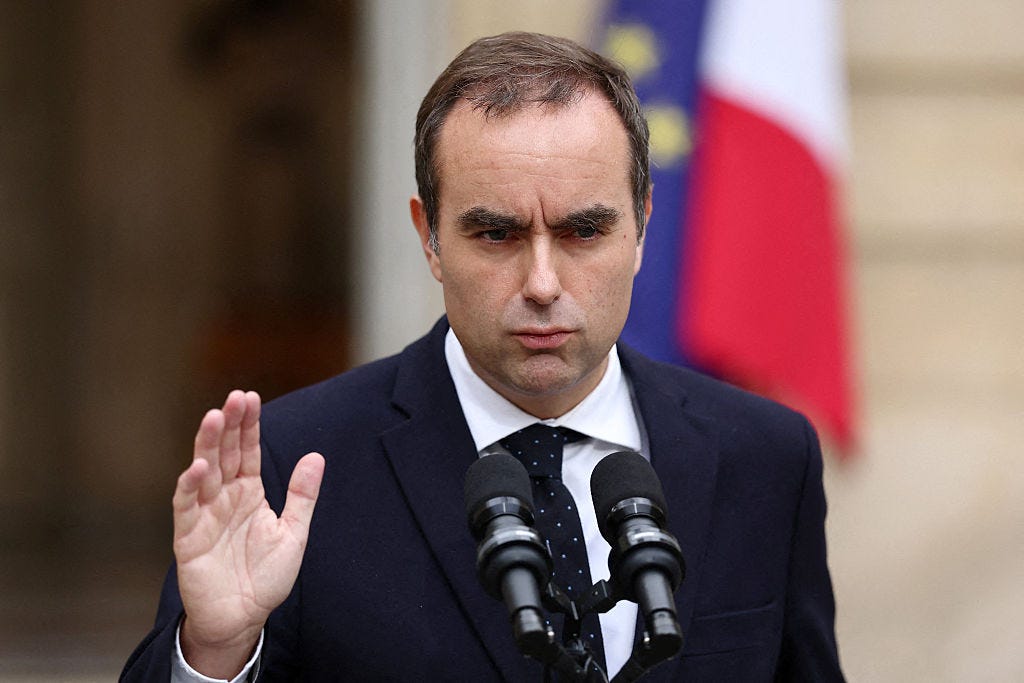| Forwarded this email? Subscribe for more |
 |
| By The Free Press |
It’s Tuesday, October 7. This is The Front Page, your daily window into the world of The Free Press—and our take on the world at large. Yesterday was a big day for us. If you missed Bari’s letter to subscribers, read it here. On to the news.
Two years ago today, Hamas invaded Israel. They slaughtered some 1,200 people and took another 250 hostage. Most of their targets were civilians. Many were children.
In this special edition of The Front Page we mark two years since that horrific day, and dive into the many ways it turned the world upside down.
In our first piece today, Douglas Murray argues that the depravity of that day started not one war, but two.
“The first is the war that the state of Israel has been fighting against its enemies, including Iran and its proxies in the region,” Douglas writes. “The second is the war that has been fought against Jews in the wider West. One of those conflicts is in the process of being won. The other feels like it is being lost.”
Understand that and you will understand so much about what has happened in Israel and Gaza, and across the West, since October 7, 2023.
As essential as Douglas’s piece is, this harrowing story from Eli Sharabi, an Israeli civilian who was abducted by Hamas on October 7 and spent the following 491 days held captive in Gaza. Here we publish an excerpt from his upcoming book Hostage, a stunning account of what it took to be tortured and abused for more than a year—and survive.
Eli is Bari’s guest on today’s episode of Honestly. He describes how intense longing for his family kept him alive while shackled in Gaza. But when he came home, he found that his entire family—his wife, his teenage daughters—had been killed in cold blood by Hamas.
If anyone has earned a right to despair, to give up on life, it’s Eli Sharabi. But he doesn’t. He chose—and continues to choose—survival at every turn. He chooses life in the face of death. And he explains why to Bari in this remarkable interview.
He Spent 491 Days as a Hamas Hostage. This Is How He Survived. The Free Press |
Next, we have an essay from Adam Louis-Klein, who found himself far from Israel when the attack occurred. Living in a remote Amazonian village among the Desana people, Adam did not see images from October 7 until he got a weak internet connection two days later. He posted a simple phrase—Am Israeli Chai, or “the people of Israel live”—only to face an onslaught of criticism from fellow academics celebrating the assault.
Many readers will be able to relate to Adam’s account of how he lost friends because of his support for Israel after October 7, with one going so far as to call him a “filthy Zionist.” So Adam, still deep in the jungle, began to meditate on what the phenomenon of anti-Zionism really is.
“While anti-Zionism introduces itself as a ‘political opinion,’ I came to see that it was something else entirely,” Adam writes. “Anti-Zionism, like antisemitism, is an entire cosmology. In the same way in which antisemitism once cast the Jew as the world’s metaphysical enemy, anti-Zionism now casts Israel and its supporters in the same role.” Read it here:
Adam’s essay helps make sense of a very confusing world. The same theme runs through Coleman Hughes’ latest for The Free Press, in which he reflects on his recent viral debate with comedian and Israel critic Dave Smith.
“In an age where podcasts have replaced television news and influencers have replaced experts, it is important not to dismiss people simply because they don’t possess the traditional credentials,” Coleman writes of what he learned from his interaction with Smith. “For better or for worse, that ship has sailed. We must meet the challenge of the modern information age on its own terms, which means rolling up our sleeves and showing the conspiracy theorists exactly why they’re wrong—using hard evidence.”
Read the whole thing below.
If you haven’t checked it out already, watch Coleman’s debate with Smith.
And finally, how did October 7 change Israel? Amit Segal dives into the turbulent years leading up to that catastrophic day—a time Segal characterizes as Israel’s “midlife crisis.” With global attention now focused on peace negotiations between Hamas and Israel, Segal turns the lens inward, asking a question too often overlooked in the search for peace: What comes next for a nation that has spent the past several years nearly tearing itself apart from within?
—The Editors
LIVE: Niall Ferguson and Bari Weiss on October 7, Two Years Later
With Hamas signaling their openness to Trump’s peace plan, an end to the war is closer than ever. But will Hamas accept the deal? And what comes next? Don’t miss today’s livestream with Niall Ferguson and Bari Weiss at 7 p.m. ET. Click here to mark your calendars.
The government shutdown that began October 1 at 12:01 a.m. shows no sign of ending anytime soon, and some lawmakers now see October 15 as the real negotiating deadline, Politico reported. That is when active-duty military members are




